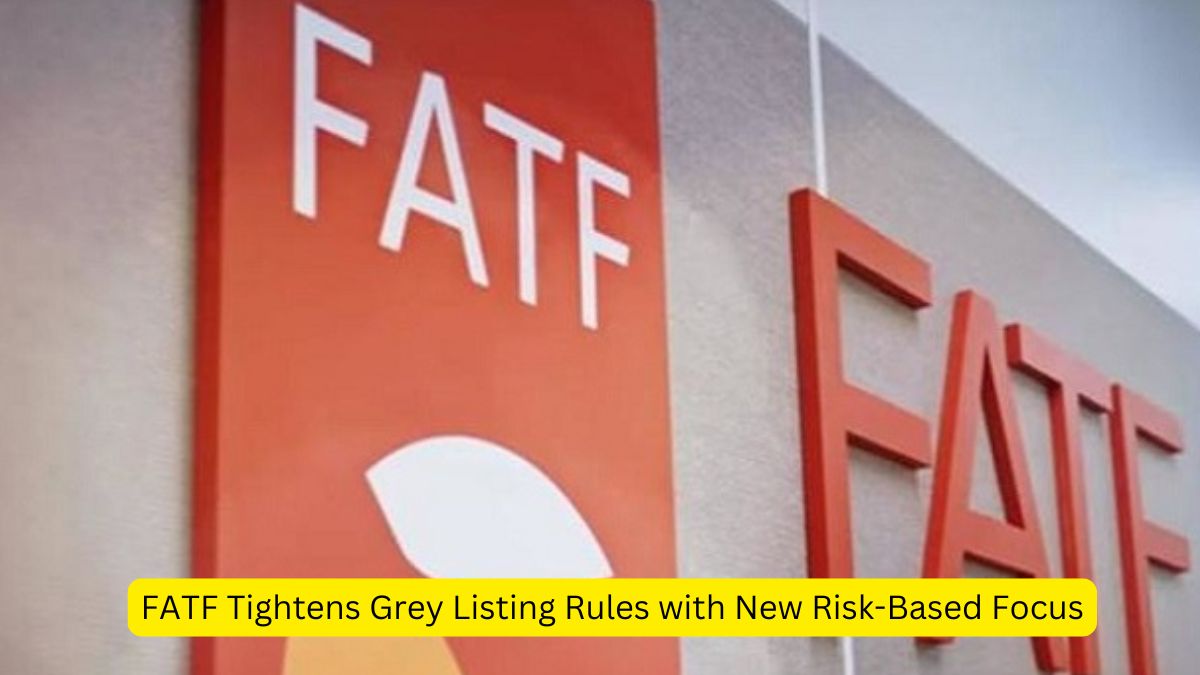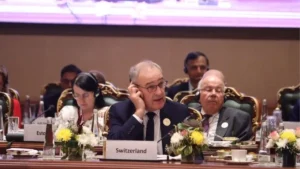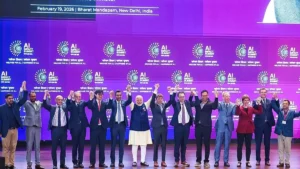The Financial Action Task Force (FATF) has introduced significant changes to its criteria for placing countries on its grey list, aiming to relieve the burden on least developed countries (LDCs) while targeting nations that pose greater risks to the international financial system.
Purpose of FATF
- FATF identifies jurisdictions with deficiencies in their systems to fight money laundering, terrorist financing, and proliferation financing.
- These weaknesses enable illicit financial flows, which fuel crimes like human trafficking, child exploitation, and terrorism.
Impact on Least Developed Countries (LDCs)
- Illicit financial flows harm LDCs the most by diverting funds away from essential services such as education and healthcare, hindering sustainable development.
- Depriving criminals of their illegal gains helps build more robust economies and societies in these nations.
FATF’s Revised Criteria
- The changes prioritize active reviews of countries that meet specific risk criteria, focusing on FATF Members.
- Countries on the World Bank’s High-Income Countries list (excluding those with only two or fewer banks in the financial sector).
- Countries with financial sector assets above USD 10 billion.
- Least developed countries will not be prioritized unless they pose significant risks related to money laundering or terrorist financing.
Extended Observation Period for LDCs
- LDCs that are subject to review will have a longer observation period (up to two years) to make progress on their Key Recommended Action roadmap.
- This gives them more time to address deficiencies and strengthen their systems.
Impact of Reforms
- The FATF expects these changes to reduce by half the number of low-capacity countries listed in future assessments.
- This allows for more targeted efforts on high-risk countries, improving the efficiency of global efforts to combat financial crime.
Background on FATF’s Grey Listing Process
- The grey list identifies countries with strategic weaknesses in their Anti-Money Laundering/Countering the Financing of Terrorism (AML/CFT) systems.
- Countries on the grey list work with experts in a peer-led process to address these deficiencies through a tailored action plan.
- The goal is to strengthen the listed countries’ defenses against financial crime, benefitting both the country and the global financial system.
FATF Grey’s List
- Bulgaria, Burkina Faso, Cameroon, Croatia, Congo, Haiti, Kenya, Mali, Monaco, Mozambique, Namibia, Nigeria, Philippines, Senegal, South Africa, South Sudan, Syria, Tanzania, Venezuela, Vietnam and Yemen.
About FATF
- FATF is an intergovernmental policy-making and standard-setting body dedicated to combating money laundering and terrorist financing.
Objective
- To establish international standards, and to develop and promote policies, both at national and international levels, to combat money laundering and the financing of terrorism.
Origin
- It was established in 1989 during the G7 Summit in Paris to develop policies against money laundering.
- In 2001, its mandate expanded to include terrorism financing.
Headquarters : Paris, France.
Members
- To become a member, a country must be considered strategically important (large population, large GDP, developed banking and insurance sector, etc.), must adhere to globally accepted financial standards, and be a participant in other important international organizations.
- FATF members include 39 countries, including the United States, India, China, Saudi Arabia, Britain, Germany, France, and the EU as such.
- India became a member of FATF in 2010.
- The FATF researches how money is laundered and terrorism is funded, promotes global standards to mitigate the risks, and assesses whether countries are taking effective action.
- Once a member, a country or organization must endorse and support the most recent FATF recommendations, commit to being evaluated by (and evaluating) other members.
- The FATF holds countries to account that do not comply with the FATF Standards.
- If a country repeatedly fails to implement FATF Standards, then it can be named a Jurisdiction under Increased Monitoring or a High-Risk Jurisdiction. These are often externally referred to as “the grey and black lists”.
Black List
- Countries known as Non-Cooperative Countries or Territories (NCCTs) are put on the blacklist.
- These countries support terror funding and money laundering activities.
- The FATF revises the blacklist regularly, adding or deleting entries.
- Three countries-North Korea, Iran, and Myanmar are currently in FATF’s blacklist.
Grey List
- Countries that are considered a safe haven for supporting terror funding and money laundering are put on the FATF grey list.
- This inclusion serves as a warning to the country that it may enter the blacklist.
| Summary/Static | Details |
| Why in the news? | The Financial Action Task Force (FATF) has introduced significant changes to its criteria for placing countries on its grey list. |
| Purpose of FATF | To identify jurisdictions with deficiencies in combating money laundering, terrorist financing, and proliferation financing. |
| FATF’s Revised Criteria | Focus on countries meeting specific risk criteria, prioritizing FATF Members and countries with large financial sectors. |
| LDCs Criteria | LDCs are not prioritized unless they pose significant risks in money laundering or terrorism financing. |
| Extended Observation Period for LDCs | LDCs get a longer observation period (up to 2 years) to address deficiencies and improve systems. |
| Impact of Reforms | Expected to reduce by half the number of low-capacity countries on future grey lists, focusing efforts on high-risk countries. |
| FATF Grey Listing Process | Countries with weak AML/CFT systems are placed on the grey list and work on action plans to address deficiencies. |
| Countries on FATF Grey List | Includes Bulgaria, Burkina Faso, Cameroon, Haiti, Kenya, Mali, Venezuela, and others. |
| About FATF | Intergovernmental body to combat money laundering and terrorist financing. Established in 1989, headquartered in Paris. |
| FATF Members | 39 members, including the U.S., India, China, Saudi Arabia, EU, etc. India became a member in 2010. |
| Black List | Countries (NCCTs) supporting terror funding and money laundering, such as North Korea, Iran, and Myanmar. |
| Grey List | Countries considered safe havens for terror funding and money laundering, potentially moving to the black list. |




 Geneva to Host AI Summit 2027 & UAE ...
Geneva to Host AI Summit 2027 & UAE ...
 India-Brazil Seal 10 Big Deals: A New Po...
India-Brazil Seal 10 Big Deals: A New Po...
 AI Impact Summit 2026 Concluded As 89 Na...
AI Impact Summit 2026 Concluded As 89 Na...








